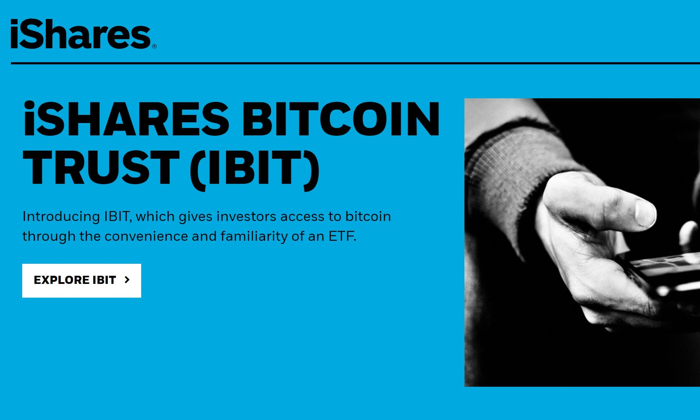In a recent warning, Villeroy de Galhau, the governor of Banque de France, has raised significant concerns about cryptocurrency and its potential risks to financial stability. He has specifically highlighted that the current endorsement of cryptocurrencies, particularly by U.S. president Donald Trump, could lead the nation down a precarious path reminiscent of past financial crises. Villeroy de Galhau articulated that the failure to regulate this burgeoning digital asset market may invite negligence that can trigger another financial turmoil originating from the U.S. This sentiment echoes a broader narrative that as the world observes U.S. financial policies shift towards crypto-assets and deregulation, the implications could be felt globally, jeopardizing economic stability. With this geopolitical backdrop, the topic of crypto regulation becomes increasingly vital in discussions surrounding the future of finance in both the United States and beyond.
Francois Villeroy de Galhau’s recent cautionary statements concerning digital currencies underscore a growing unease regarding crypto assets and their governance. The governor of France’s central bank is advocating for stringent measures in crypto regulation as lax policies may threaten the overarching stability of financial systems. His apprehensions echo fears that insufficient oversight could recreate historical financial upheavals, especially with the increased focus on non-traditional banking methods embraced by the Trump administration. Highlighting the potential repercussions of deregulation, Villeroy is urging a proactive approach to safeguarding economic integrity as cryptocurrency’s influence expands. As debates around digital finance continue, the call for regulatory frameworks becomes indispensable to avert potential pitfalls associated with unregulated financial innovations.
Francois Villeroy de Galhau’s Stance on Cryptocurrency Regulation
Francois Villeroy de Galhau, the governor of Banque de France, has emerged as a notable critic of cryptocurrencies, particularly under the influence of U.S. policies led by former President Trump. In recent interviews, he emphasized the dangers posed by cryptocurrencies and the rise of non-bank financial institutions, arguing that these developments might invite a financial crisis reminiscent of historical downturns. Villeroy is particularly concerned about how such trends disrupt financial stability and undercut established regulatory frameworks designed to protect investors and maintain order in the financial markets.
Villeroy’s warnings highlight the risk of negligence on the part of the U.S. government in protecting its economic landscape. He asserts that the increasing acceptance of cryptocurrencies without stringent regulation can lead to market volatility, which not only threatens investors but could also lead to broader economic consequences. His perspective aligns with the ongoing discussions surrounding crypto regulation, as many industry experts advocate for monitoring and oversight to prevent potential crisis scenarios.
The Connection Between Trump’s Policies and Financial Stability
The Trump administration’s approach to cryptocurrency has drawn significant scrutiny, particularly from financial leaders like Villeroy de Galhau. His argument outlines a clear link between the lack of regulatory action and the financial instability that could arise from widespread cryptocurrency adoption. Trump’s policies, including the creation of a crypto strategic reserve, have been seen as an endorsement of the unregulated crypto market. Villeroy argues that this lack of oversight could replicate the financial crises originating from the U.S. historical framework, which showcases the need for a reassessment of crypto strategies.
Moreover, Villeroy contends that by allowing cryptocurrencies to flourish without regulation, the U.S. is essentially sowing seeds for future financial turmoil, echoing his fears that financial crises like those driven by the housing market bubble could happen again. This perspective underscores the importance of integrating regulatory measures to uphold financial stability, a sentiment that resonates deeply in the global financial community battling the impacts of the U.S.’s evolving landscape toward cryptocurrency.
Historical Financial Crises and the Role of Cryptocurrency
Villeroy de Galhau’s cautionary stance on cryptocurrencies is grounded in historical context, where past financial crises largely stemmed from inadequate regulation. He references significant events like the Great Depression and the Great Recession, both triggered by failures in financial oversight and market speculation. By paralleling these historical events with the current cryptocurrency trend, he raises important considerations about the potential repercussions if sufficient measures are not put in place to control the burgeoning crypto ecosystem.
The link between historical financial crises and modern cryptocurrency dynamics situates Villeroy’s warnings in a broader narrative about the need for regulatory frameworks. As cryptocurrencies continue to gain traction and attract investments, the risk of unchecked volatility becomes apparent. Villeroy emphasizes that without proactive regulation similar to the frameworks seen in traditional finance, the global economy may face irreversible damage reminiscent of past crises, thus reiterating the need for a balanced approach that embraces innovation while prioritizing stability.
Regulatory Challenges and the Future of Non-Bank Finance
Non-bank finance, including cryptocurrencies, presents regulatory challenges that require immediate attention, according to Villeroy de Galhau. The current trend of deregulation under the Trump administration has left gaps in oversight, allowing non-banking entities to operate outside traditional financial controls. This creates an environment ripe for risky financial behaviors, which may threaten the overarching goals of financial stability and economic resilience. Villeroy’s concerns underscore the urgency for regulatory bodies to catch up with the rapid developments in the financial sector.
Advocating for clear regulations, Villeroy argues that ensuring responsible practices in the crypto market can protect investors and promote stability. The challenge lies not only in crafting appropriate regulations but also in enforcing them in a landscape characterized by unpredictability and innovation. As the U.S. navigates these complexities, leaders like Villeroy stress the importance of learning from past crises to establish a robust regulatory framework that can accommodate the evolution of non-bank finance while mitigating potential risks.
The Global Implications of U.S. Cryptocurrency Policies
The global financial system is acutely sensitive to U.S. economic policies, and Villeroy de Galhau’s warnings about cryptocurrency regulation highlight the potential implications for international markets. As the U.S. adopts a more permissive attitude toward cryptocurrencies, other nations might feel compelled to follow suit or risk losing competitiveness in a rapidly changing financial landscape. This dynamic raises questions about the balance between innovation and responsibility, particularly when it comes to cross-border transactions and regulatory harmonization.
Villeroy asserts that the embrace of cryptocurrencies without adequate regulation could lead to international repercussions, including heightened risks for global financial markets. The interconnectedness of economies means that a financial crisis in the U.S., potentially fueled by unchecked crypto assets, could cascade through global systems. This scenario emphasizes the need for international collaboration among financial regulators to create cohesive frameworks addressing the complexities of cryptocurrencies and non-bank finance, ensuring that stability is maintained across borders.
Building a Framework for Sustainable Cryptocurrency Integration
As cryptocurrencies increasingly become part of the mainstream financial conversation, establishing a regulatory framework that allows for sustainable integration is critical. Villeroy de Galhau advocates for a balanced approach, recognizing the potential of blockchain technology and digital currencies while simultaneously addressing the risks they pose. He emphasizes that regulations must facilitate innovation yet provide the necessary safeguards to protect investors and maintain market order.
Creating a sustainable framework that accommodates both the rapid pace of technological innovation in finance and the need for investor protections is crucial. Villeroy’s views suggest that effective regulation can lead to the positive evolution of financial technologies, contributing to a more robust financial ecosystem. Policymakers must prioritize collaborative efforts with industry stakeholders to design regulations that enhance both financial stability and technological advancement.
Villeroy de Galhau on the Future of Financial Regulation
Amid the evolving landscape of finance, Villeroy de Galhau’s predictions about the future of regulation are increasingly significant. He underscores that as cryptocurrencies continue to thrive, the framework that governs them must evolve correspondingly. The push for stricter regulations is not merely about controlling speculative bubbles; it’s also a proactive measure to ensure long-term financial viability and security in an uncertain economic climate.
Villeroy believes that adapting regulatory practices to accommodate innovative financial products will play a vital role in shaping the future landscape of finance. This includes enhancing collaboration among global regulatory bodies and sharing best practices in crypto regulations. By doing so, a more cohesive approach can be established that not only mitigates risks but also embraces the possibilities presented by cryptocurrencies in enhancing financial system inclusivity and transparency.
The Importance of Financial Literacy in a Crypto World
As cryptocurrencies become more prevalent, financial literacy regarding these digital assets is crucial for investors and the general public. Villeroy de Galhau emphasizes the need for educational initiatives that provide clear guides on navigating the complexities of crypto investments. Understanding the ramifications of engaging with cryptocurrencies can empower consumers to make informed decisions and reduce the likelihood of financial missteps associated with speculative investing.
Promoting financial literacy is essential not only to protect individual investors but also to foster a more stable financial environment overall. By equipping individuals with the knowledge of risks and benefits associated with cryptocurrencies, the financial landscape can see a healthier participation rate among consumers. Villeroy’s advocacy for increased understanding emphasizes a comprehensive approach to integrating cryptocurrencies within broader financial education frameworks.
Final Thoughts on Cryptocurrency and Financial Stability
Francois Villeroy de Galhau’s insights on the intersection of cryptocurrency and financial stability resonate deeply in today’s economic climate. His concerns surrounding Trump’s policies reflect an urgent need for careful consideration of how cryptocurrencies are integrated into the financial system. As the global economy continues to face uncertainties, the potential implications of unregulated cryptocurrency growth could bring about significant challenges that threaten financial stability.
Ultimately, finding a way to harmonize innovation with regulation is vital for the sustainability of both the financial markets and the cryptocurrency ecosystem. Villeroy’s perspectives remind policymakers and industry stakeholders of the critical role that proactive governance plays in mitigating risks and ensuring a stable financial future for everyone. As the dialogue continues, the call for comprehensive regulatory measures to protect against the challenges posed by cryptocurrencies will remain paramount.
Frequently Asked Questions
What is Villeroy de Galhau’s stance on cryptocurrency regulation?
Francois Villeroy de Galhau, the governor of Banque de France, warns that the U.S. government, under President Trump, is making a mistake by not adequately regulating cryptocurrencies. He believes this could lead to significant financial instability and risk a financial crisis akin to those historically originating in the U.S.
How does Villeroy de Galhau connect Trump’s cryptocurrency policies to financial stability?
Villeroy de Galhau argues that Trump’s cryptocurrency policies, which include supporting non-bank finance and de-regulation, threaten financial stability. He emphasizes that without proper regulation, the U.S. could be sowing the seeds for future economic upheavals.
What historical financial crises did Villeroy de Galhau reference in his warning about cryptocurrency?
Villeroy de Galhau recalled three major crises that originated in the U.S.: the Great Depression of 1929, the OPEC Oil Price Shock of 1973, and the Great Recession related to the housing bubble, suggesting that a lack of cryptocurrency regulation could lead to similar crises.
Why does Villeroy de Galhau consider the deregulation of cryptocurrencies dangerous?
He believes that the current climate of deregulation under Trump could jeopardize overall financial stability. Villeroy has highlighted that without oversight, the potential for future economic upheaval increases, putting both the U.S. and global economies at risk.
How do Trump’s policies impact cryptocurrency regulation according to Villeroy de Galhau?
According to Villeroy de Galhau, Trump’s policies have led to a significant shift in how the U.S. government handles cryptocurrency regulation, allowing for diminished scrutiny over digital assets. This, he argues, could invite financial risks and crises, reflecting a trend that may adversely affect global markets.
What recommendations might Villeroy de Galhau suggest for cryptocurrency regulation?
While Villeroy de Galhau hasn’t specified exact measures, he advocates for stricter regulations surrounding non-bank finance and cryptocurrencies to ensure financial stability and avoid the historical pattern of financial crises originating in the U.S.
How does Villeroy de Galhau view the creation of a U.S. crypto strategic reserve?
Villeroy de Galhau has expressed concerns over Trump’s intention to create a crypto strategic reserve to stockpile cryptocurrencies like Bitcoin and Ethereum. He sees this as a move that could exacerbate financial instability due to the lack of regulation in the crypto space.
What is the potential impact of Villeroy de Galhau’s cryptocurrency warning on international finance?
Villeroy de Galhau’s warnings highlight the interconnectedness of global finance. He suggests that risks stemming from U.S. cryptocurrency policies could ripple worldwide, indicating that international markets should remain vigilant of the potential instability these policies may produce.
| Key Point | Description |
|---|---|
| Francois Villeroy de Galhau’s Position | Villeroy, governor of Banque de France, argues against cryptocurrency support by President Trump. |
| Concerns about Financial Crisis | He warns that embracing cryptocurrencies may invite financial crises, as seen historically. |
| Historical Precedents | References financial crises originating in the U.S., including the Great Depression, Oil Price Shock, and Great Recession. |
| Regulatory Warnings | Villeroy criticized the lack of regulation surrounding cryptocurrencies and non-bank finance since early 2020. |
| Deregulation under Trump | He views recent deregulation efforts as dangerous, especially for digital asset interactions. |
| Importance of Regulation | Emphasizes that financial stability relies on proper regulation amidst evolving digital finance. |
Summary
The Villeroy de Galhau cryptocurrency warning highlights significant concerns regarding the potential dangers of embracing cryptocurrencies as illustrated by President Trump’s policies. Villeroy believes that the U.S. risks financial instability by supporting cryptocurrency and deregulating financial sectors, which could lead to crises similar to those faced in history. He calls for stricter regulations to protect against the upheavals provoked by the rapid growth of non-bank finance. As financial regulations evolve, addressing these concerns becomes crucial to safeguard the economic landscape.
In the realm of cryptocurrency, **Villeroy de Galhau cryptocurrency warning** stands as a crucial alert from the governor of Banque de France. François Villeroy de Galhau recently voiced his strong concerns regarding the implications of cryptocurrency advocacy by the Trump administration. He argues that this direction could ultimately compromise financial stability, reminiscent of historic financial crises that often begin in the United States. With the recent shifts in crypto regulation, concerns grow that the U.S. might be recklessly heading towards another economic downturn, further amplifying the potential for a new US financial crisis. As cryptocurrencies gain traction, Villeroy’s insights call for a careful reassessment of policies surrounding digital assets to ensure robust safeguards for the economy.
François Villeroy de Galhau, a prominent figure in European financial circles, has recently issued a cautionary note regarding the rise of digital currencies, reflecting broader concerns in the banking sector. His commentary highlights the potential risks that embrace of cryptocurrencies by government leaders, particularly in the United States, could pose to financial health globally. Advocating for stricter oversight and regulatory frameworks, Villeroy underscores that the intersection of non-traditional finance and digital asset trading warrants careful scrutiny. Given the historical precedents of financial instabilities often originating from American markets, stakeholders are urged to ponder the long-term consequences of lax crypto policies. As calls for better regulation grow louder, the importance of safeguarding economic integrity has never been more pertinent.















